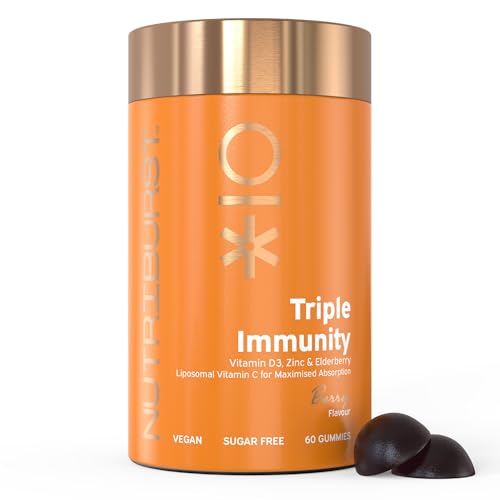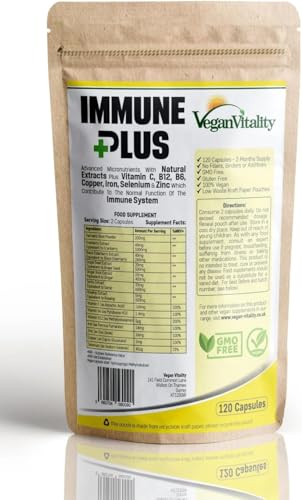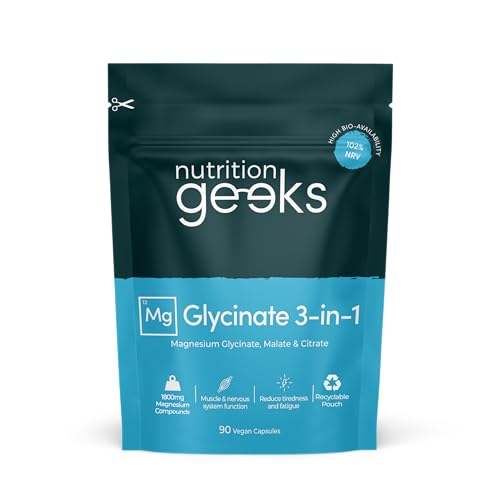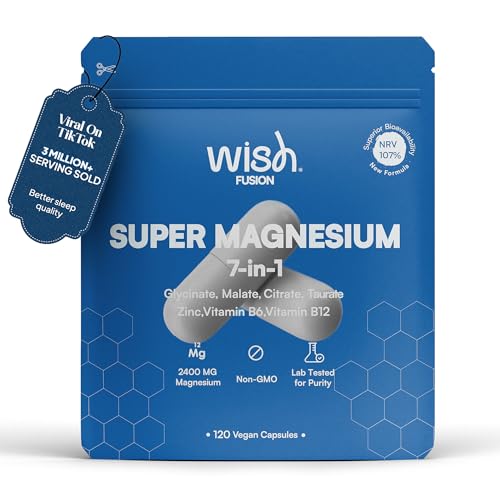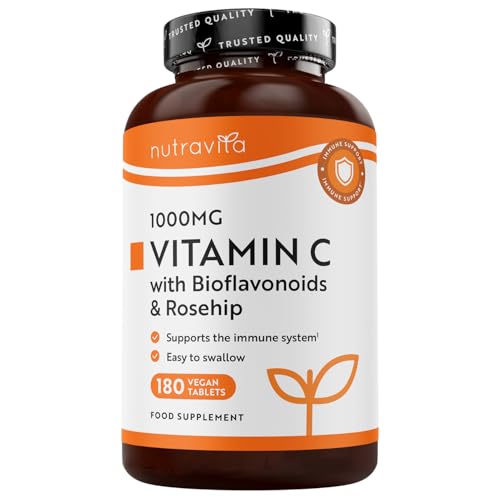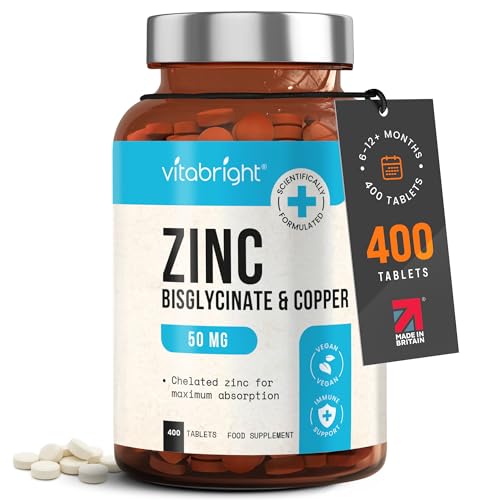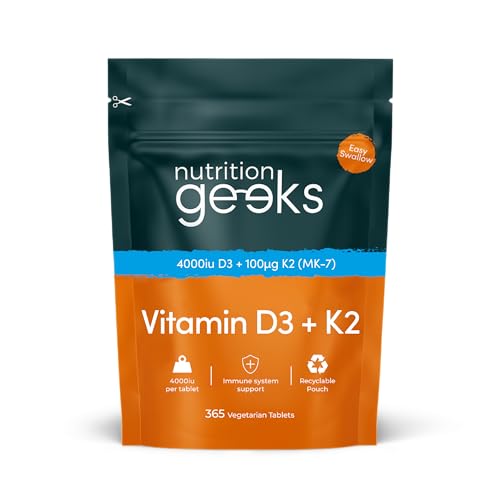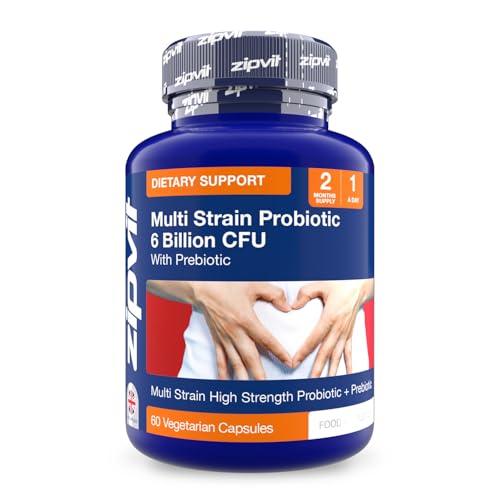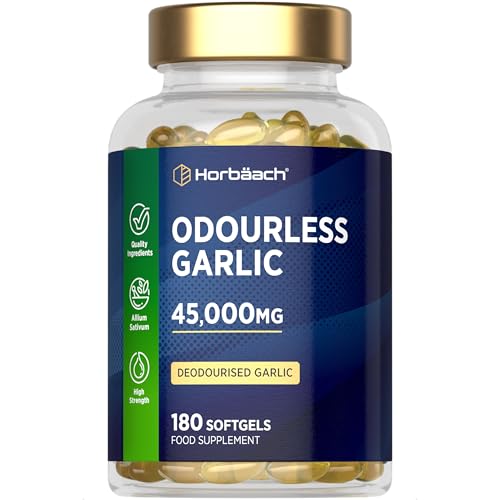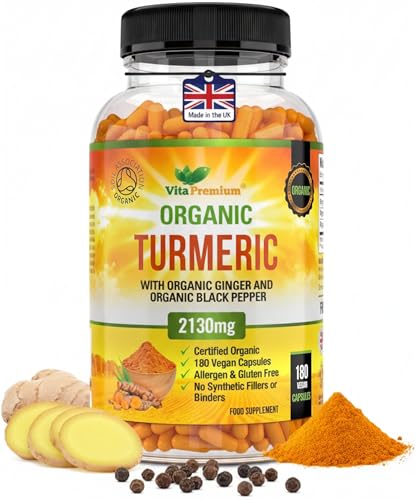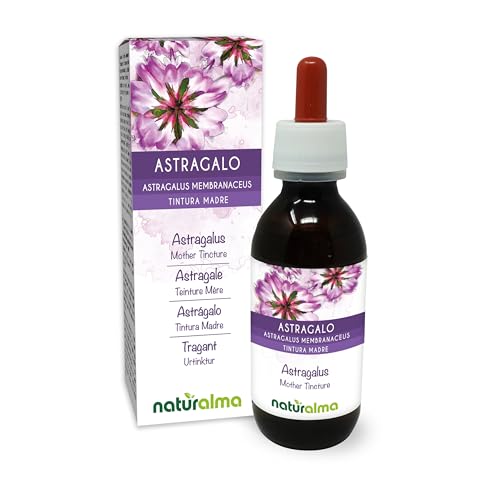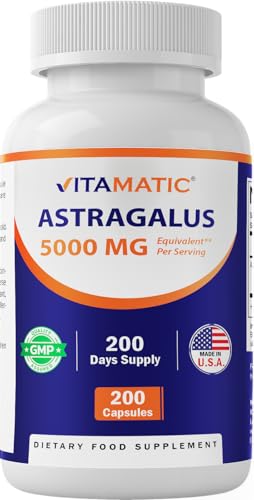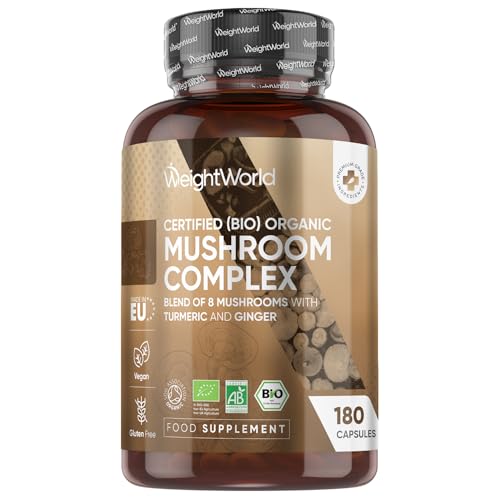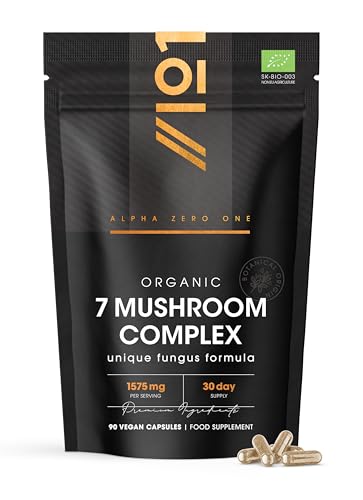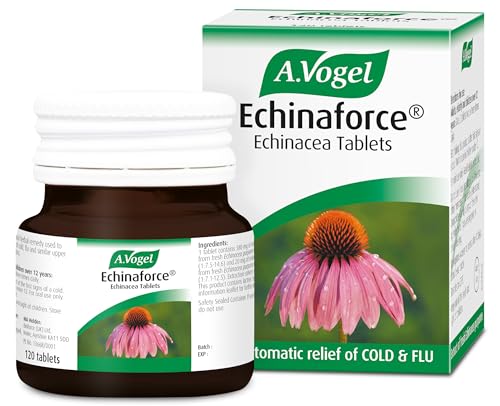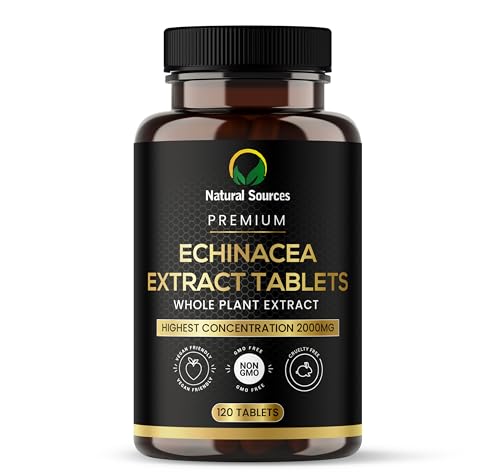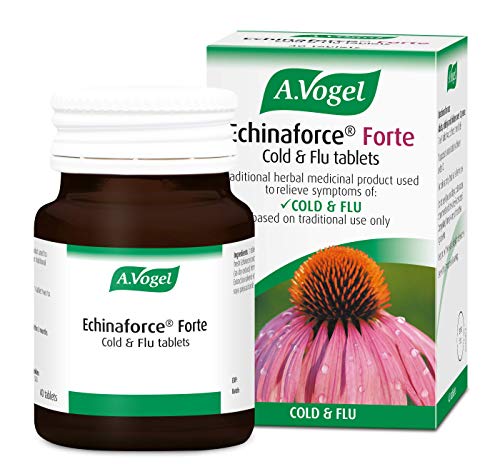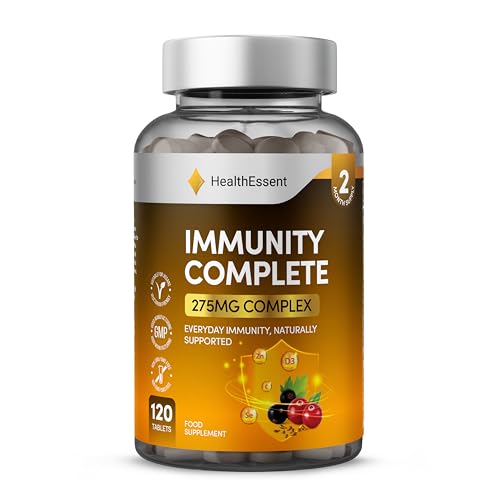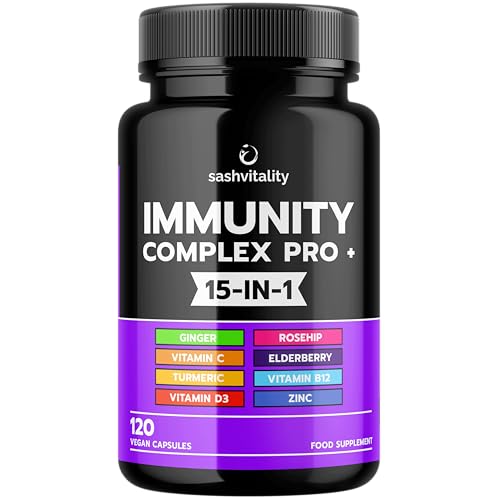
The Complete Guide to Immunity Boosters
In today's world, where health and wellness take centre stage, having a strong immune system is more important than ever. Your immune system acts as a powerful shield, defending your body against harmful pathogens and keeping you healthy and vibrant. But how can you ensure that your immune system is operating at its optimal level? That's where lifestyle choices, nutrition, and supplements come into play.
In this comprehensive guide, we delve into the fascinating world of immunity boosters. From understanding the intricate workings of the immune system to exploring top nutrients and natural remedies that support its function. So get ready to empower your body's defence mechanisms for a healthier tomorrow!
Understanding the Immune System
Our immune system is a complex network of cells, tissues, and organs that work together to defend our bodies against harmful invaders like bacteria, viruses, and toxins. It acts as a shield, constantly on guard to keep us healthy and protected.
At its core, the immune system has two primary functions: recognition and response. When foreign substances enter our body, specialised immune cells called lymphocytes identify them as either self or non-self. If they are deemed non-self - they are potentially harmful pathogens - an intricate process known as the immune response is initiated.
Immune cells play a crucial role in protecting our body from infections. They come in different forms such as white blood cells (leukocytes), macrophages, natural killer cells (NK cells), and antibodies produced by B-cells. Each type of cell has its own unique function but works collaboratively to neutralise threats.
While our immune system is designed to be resilient, there are factors that can weaken it over time. Chronic stress can have detrimental effects on the immune response by increasing inflammation levels in the body. Lack of sleep also impairs immune function as it disrupts key processes involved in repairing and rejuvenating our defences.
Furthermore, poor nutrition can lead to nutrient deficiencies that compromise the efficient functioning of immune cells. A diet lacking essential vitamins like vitamin C or minerals like zinc may result in weakened immunity.
Maintaining overall health through lifestyle choices such as regular exercise and balanced nutrition is vital for supporting optimal functioning of your defence mechanisms.
Building a Strong Foundation
Building a strong immune system requires a solid foundation, and that starts with a balanced diet. A well-rounded eating plan ensures you're getting all the necessary nutrients to support your immune health. Focus on incorporating fruits, vegetables, whole grains, lean proteins, and healthy fats into your meals.
Regular exercise and physical activity also play a crucial role in boosting immunity. Moving your body not only helps strengthen muscles but also improves circulation and stimulates the lymphatic system. Aim for at least 30 minutes of moderate-intensity exercise most days of the week.
In addition to nutrition and exercise, prioritising sleep is essential for immune system recovery. During sleep, our bodies repair tissues and produce cytokines – proteins that regulate inflammation and promote healing. Aim for seven to nine hours of quality sleep each night to allow your immune system to function optimally.
By focusing on these foundational elements – a balanced diet, regular exercise, and sufficient sleep – you can create an environment where your immune system thrives. Remember that small changes made consistently over time can have significant long-term benefits for your overall health and immunity.
How to Use Immunity Boosters
When it comes to boosting your immune system, incorporating the right supplements and nutrients into your routine is key. But how exactly should you be using these immunity boosters? Let's explore some simple tips and strategies.
It's important to remember that supplements are not a magic cure-all. They should be used as part of a holistic approach to wellness, which includes maintaining a healthy lifestyle and diet. Supplements are meant to complement your existing habits, not replace them.
Start by assessing your current health status and consult with a healthcare professional if needed. This will help determine which specific immunity-boosting nutrients or herbs may be most beneficial for you.
Next, consider the timing and dosage of your chosen supplements. Some nutrients need to build up in your system over time, so consistency is key. Follow the recommended dosage instructions on the packaging or as advised by your healthcare provider.
It's also essential to choose high-quality products from reputable brands. Look for third-party testing certifications or consult with experts who can guide you towards trusted options.
Remember that no supplement can replace a well-rounded diet rich in fruits, vegetables, whole grains, and lean proteins. Focus on nourishing yourself with nutrient-dense foods while using supplements as an additional support tool.
By taking these steps and tailoring your approach based on individual needs and guidance from professionals, you'll optimise the effectiveness of immunity boosters in supporting overall immune health. So lets go ahead - empower yourself with knowledge about proper usage of immunity boosters!
Top Immunity-Boosting Nutrients
- Vitamin C
Vitamin C is often hailed as the ultimate immune-boosting nutrient, and for good reason. It plays a crucial role in supporting immune function by promoting the production of white blood cells, which are essential for fighting off pathogens and infections. When it comes to incorporating vitamin C into your diet naturally, there are plenty of options to choose from. Citrus fruits like oranges, lemons, and grapefruits are well-known sources of this powerful antioxidant. Other fruits such as strawberries, kiwi, and papaya also pack a punch when it comes to vitamin C content. Vegetables like bell peppers, broccoli, and spinach are also excellent choices. While getting your daily dose of vitamin C through food is ideal, supplements can be a convenient option for some individuals. When selecting a supplement, it's important to consider factors such as dosage recommendations and potential interactions with other medications you may be taking. Remember that boosting your immunity isn't just about one nutrient alone – it's about maintaining a balanced diet rich in various vitamins and minerals. So, while vitamin C is definitely an important player in supporting immune health, don't forget to incorporate other nutrients into your daily routine for optimal results!
Bestseller No. 1Bestseller No. 2SaleBestseller No. 3 - Zinc
Zinc is a vital nutrient when it comes to boosting our immune system. It plays a crucial role in the development and function of immune cells, helping them fight off pathogens and protect us from infections. Including zinc-rich foods in your diet is an excellent way to ensure you're getting enough of this essential mineral. Foods like oysters, beef, chicken, pumpkin seeds, and spinach are all great sources of zinc. Incorporating these into your meals can help strengthen your immune response. In addition to dietary sources, zinc supplements can also be effective in supporting immune health. However, it's important to use them wisely and follow the recommended dosage guidelines. Taking too much zinc for an extended period may lead to adverse effects on the immune system. If you choose to take zinc supplements, consider consulting with a healthcare professional who can guide you on the appropriate dosage based on your individual needs. They can also help assess if supplementation is necessary or if adjusting your diet alone will suffice for meeting your daily requirements. Remember that while zinc is beneficial for immunity, it's just one piece of the puzzle. Maintaining overall good nutrition through a balanced diet rich in various nutrients will provide comprehensive support for optimal immune function.
Bestseller No. 1Bestseller No. 2 - Vitamin D
Vitamin D is not just essential for strong bones, but it also plays a crucial role in supporting our immune system. This powerful nutrient helps regulate the immune response and promotes the production of antimicrobial peptides that fight off harmful pathogens. One of the best ways to boost your vitamin D levels is through sunlight exposure. When UVB rays from the sun hit our skin, they trigger a chemical reaction that allows our bodies to produce vitamin D naturally. Aim for about 10-15 minutes of direct sunlight on your arms and legs a few times a week to optimise vitamin D synthesis. However, if you live in an area with limited sunlight or have difficulty getting enough sun exposure, supplementing with vitamin D may be necessary. When choosing supplements, look for ones that contain vitamin D3 (cholecalciferol), as it is more effective at raising blood levels compared to vitamin D2 (ergocalciferol). Additionally, consider consulting with a healthcare professional to determine the appropriate dosage based on your individual needs. Remember, maintaining optimal levels of vitamin D can help strengthen your immune system and support overall health. So make sure you're getting enough sunshine or considering supplementation if needed.
SaleBestseller No. 1Bestseller No. 2 - Probiotics
Probiotics, the beneficial bacteria that reside in our gut, have been gaining increasing attention for their role in supporting immune health. The connection between gut health and the immune system is fascinating. Our gut houses trillions of microorganisms that play a crucial role in maintaining overall well-being. Consuming probiotic-rich foods can help promote a healthy balance of gut bacteria, which in turn boosts our immune system. Foods like yoghurt, kefir, sauerkraut, and kimchi are excellent sources of natural probiotics. In addition to food sources, many people also choose to supplement their diet with probiotics. When selecting a probiotic supplement, it's important to consider factors such as strain diversity and potency. Look for supplements that contain multiple strains of beneficial bacteria and adequate colony-forming units (CFUs) to ensure effectiveness. It's worth noting that different strains of probiotics may have varying effects on immunity. For example, certain strains may be particularly beneficial for respiratory health or reducing allergy symptoms. As with any dietary change or supplement regimen, it's always best to consult with a healthcare professional before starting any new routine. They can provide personalised advice based on your unique needs and help you select the most appropriate probiotic product for you. Taking care of your gut health through incorporating probiotics into your diet or using supplements can be an effective way to support your immune system naturally. So go ahead and nourish those friendly microbes residing within you!
Bestseller No. 1Bestseller No. 2SaleBestseller No. 3
Natural Immune Boosters
- Elderberry
Elderberry, with its vibrant purple hue, is not only a visually pleasing fruit but also packs a powerful punch when it comes to boosting your immune system. Rich in antioxidants, elderberries help to combat free radicals and reduce oxidative stress in the body. Incorporating elderberry into your diet can be done in various ways. One popular option is to consume elderberry syrup or extract, which can easily be added to smoothies or drizzled over yoghurt for an extra immune boost. Another option is to enjoy dried elderberries as a nutritious snack on their own or mixed into trail mixes and granola. When considering elderberry supplements, it's important to choose reputable brands that have been tested for purity and potency. Look for products that contain standardised extracts of Elderberry (Sambucus nigra) and follow the recommended dosage guidelines provided by the manufacturer. Remember, while elderberries offer numerous health benefits, they should not replace a balanced diet rich in fruits and vegetables. So, go ahead and embrace this natural immune booster as part of your wellness routine!
Bestseller No. 1SaleBestseller No. 2 - Garlic
Garlic has long been recognised for its immune-boosting properties, thanks to compounds like allicin. Allicin is known for its antimicrobial and antibacterial effects, which can help support the body's defences against pathogens. When it comes to incorporating garlic into your cooking, the possibilities are endless. You can add minced garlic to your sautéed vegetables, mix it with olive oil and herbs for a flavourful marinade, or even roast whole cloves for a milder yet still delicious taste. Get creative in the kitchen and experiment with different recipes to make sure you're getting all the benefits that garlic has to offer. In addition to using garlic in cooking, you may also consider adding garlic supplements to your routine. These supplements typically contain concentrated forms of allicin or other beneficial compounds found in garlic. However, it's important to use them wisely and consult with a healthcare professional before starting any new supplement regimen. Remember that natural immune boosters like garlic are just one piece of the puzzle when it comes to supporting your overall immune health. It's crucial to maintain a balanced diet, get regular exercise, prioritise sleep, and take care of your mental well-being as well. By incorporating natural immune boosters like garlic into your lifestyle along with other healthy habits, you can give your immune system the support it needs to stay strong and resilient.
SaleBestseller No. 1Bestseller No. 2 - Turmeric and Curcumin
Turmeric has gained popularity in recent years for its many health benefits, including its potential as a natural immune booster. The active compound found in turmeric, curcumin, has been shown to have anti-inflammatory and immune-modulating effects. Adding turmeric to your meals is a simple and delicious way to incorporate this powerful spice into your diet. You can sprinkle it on roasted vegetables, blend it into smoothies, or use it as a seasoning for soups and stews. Turmeric not only adds vibrant colour but also imparts a warm and earthy flavour to dishes. When choosing curcumin supplements, quality is key. Look for products that contain standardised extracts with high levels of curcuminoids. It's also important to consider the bioavailability of curcumin since it is poorly absorbed by the body on its own. Some supplements may include ingredients like black pepper extract (piperine) or fats/oils to enhance absorption. Remember that while turmeric and curcumin can support immune health, they should be part of an overall balanced lifestyle that includes proper nutrition, regular exercise, adequate sleep, and stress management. Incorporating these small changes into your daily routine can help strengthen your immune system naturally over time without relying solely on supplements. So, go ahead and embrace the power of turmeric and curcumin! Experiment with new recipes and find creative ways to incorporate this golden spice into your meals for both taste and immune-boosting benefits.
SaleBestseller No. 1Bestseller No. 2
Herbal Support for Immunity
- Astragalus
Astragalus, a herb with a rich history in traditional Chinese medicine, has long been valued for its immune-boosting properties. This powerful herb is known to enhance the body's natural defences and promote overall wellness. One popular way to harness the benefits of astragalus is by brewing astragalus tea. Simply steep dried astragalus root in hot water for about 10 minutes to create a soothing and aromatic herbal infusion. Sip on this warm beverage regularly to support your immune system's vitality. In addition to enjoying astragalus tea, you can also explore astragalus supplements as part of your immunity-boosting regimen. These supplements typically come in capsule or powder form, making them convenient options for those seeking an extra boost of immune support. Remember that while herbs like astragalus can be beneficial for immune health, it's important to consult with a healthcare professional before incorporating any new supplement into your routine. They can provide personalised guidance based on your specific needs and help ensure you're using these herbal remedies safely and effectively. Boost your immunity naturally with the power of herbs like astragalus – they may just become an essential part of your wellness journey!
Bestseller No. 1Bestseller No. 2 - Mushrooms
Mushrooms have long been revered for their potential immune-boosting properties. One of the key components responsible for this is beta-glucans, a type of complex carbohydrate found in mushrooms. Beta-glucans have been shown to enhance the activity of immune cells, helping to bolster the body's defence against pathogens. Incorporating immune-boosting mushrooms into your diet can be as simple as adding them to your favourite recipes. Shiitake, maitake, and reishi are just a few examples of mushrooms known for their immunomodulatory effects. These flavourful fungi can be sautéed with vegetables, added to soups or stews, or even used as a meat substitute in dishes like mushroom burgers. If you're looking to supplement with mushrooms specifically for immune support, there are various types available in supplement form. Some popular options include cordyceps, lion's mane, and turkey tail mushrooms. These supplements typically come in capsule or powder form and can easily be incorporated into your daily routine. Remember that while incorporating mushrooms into your diet or taking mushroom supplements may offer potential benefits to immune health, it's important to maintain a balanced approach overall. A healthy lifestyle that includes regular exercise, adequate sleep, and a varied diet rich in fruits and vegetables will provide comprehensive support for your immune system. So, why not explore the world of mushrooms and see how they can contribute to fortifying your immunity. Add them to meals whenever possible or consider trying out mushroom supplements if you're looking for an extra boost!
SaleBestseller No. 1SaleBestseller No. 2SaleBestseller No. 3 - Echinacea
Echinacea, a popular herb known for its immune-boosting properties, has been used for centuries to reduce the symptoms of colds. This powerful plant is believed to stimulate the immune system, helping the body fight off infections and viruses more effectively. One way to incorporate echinacea into your routine is by brewing echinacea tea. Simply steeping dried or fresh echinacea flowers in hot water can create a soothing and therapeutic beverage. Sip on this warm concoction when you feel under the weather or as a preventive measure during cold and flu season. In addition to tea, echinacea supplements are also available in various forms such as capsules or tinctures. When opting for these supplements, it's important to use them wisely. Follow the recommended dosage instructions provided on the packaging or consult with a healthcare professional for personalised advice. While echinacea shows promise in reducing cold symptoms, it's essential to remember that everyone's response to herbal remedies may vary. It's always wise to approach any supplement with caution and be aware of potential interactions with other medications you may be taking. Incorporating echinacea into your wellness routine can be a natural and effective way to support your immune system during times of illness or vulnerability. Remember, maintaining overall good health through proper nutrition, exercise, sleep, and stress management is key when seeking optimal immunity.
Bestseller No. 1Bestseller No. 2SaleBestseller No. 3
Designing an Immunity-Boosting Plan
Assessing your current lifestyle and dietary habits is the first step towards strengthening your immune system. Take a moment to reflect on your daily routine, from the foods you eat to the amount of physical activity you engage in. Are there areas that could use improvement? Identifying these areas will help guide you in creating a plan that suits your unique needs.
Creating a balanced and varied meal plan for immune health is essential. Fill your plate with nutrient-dense foods like fruits, vegetables, whole grains, and lean proteins. These provide important vitamins, minerals, antioxidants, and fibre that support optimal immune function.
Incorporating immune-boosting supplements effectively can also play a role in enhancing immunity. However, it's crucial to approach supplementation with caution and consult a healthcare professional before starting any new regimen. They can help determine which supplements are appropriate for you based on factors such as age, medical history, and specific nutritional needs.
Remember that no single supplement or food alone can magically boost your immune system overnight. Building resilience takes time and consistency. Focus on making small changes to your lifestyle and implementing them gradually into your routine.
By taking proactive steps towards designing an immunity-boosting plan tailored to fit your individual needs, you'll be well on your way to supporting optimal immune health for years to come!
Consulting a Healthcare Professional
Consulting a healthcare professional is crucial when it comes to optimising your immune health. The importance of individualised advice cannot be overstated, as everyone's immune system and nutritional needs are unique. A doctor or registered dietitian can provide personalised recommendations based on your specific circumstances.
But when should you consider seeking professional guidance? If you have a pre-existing medical condition, such as diabetes or autoimmune disorders, it's especially important to consult with a healthcare provider before making any significant changes to your diet or supplement regimen. They can help ensure that any adjustments align with your overall treatment plan.
Additionally, if you're experiencing persistent symptoms or frequent illnesses despite efforts to boost your immunity, consulting with a healthcare professional is advisable. They can assess whether there may be underlying issues impacting your immune function and recommend appropriate interventions.
It's also essential to avoid overusing supplements without proper guidance. While some supplements can support immune health, taking excessive amounts or combining certain supplements could lead to adverse effects or interactions with medications you may be taking. Consulting a healthcare professional will help ensure that the supplements you choose are safe and effective for you.
Remember, each person is unique in their health journey, so what works for one individual may not work for another. By seeking expert advice from qualified professionals like doctors and registered dietitians, you'll receive tailored recommendations that prioritise both your short-term and long-term immune health goals while minimising potential risks.
Conclusion
To achieve long-term immune health, it's important to make small and sustainable changes to your lifestyle. By incorporating these changes into your daily routine, you can help strengthen your immune system and protect yourself from illnesses.
Focus on maintaining a balanced diet that includes a variety of nutrient-rich foods. Incorporate fruits and vegetables that are high in vitamin C, such as citrus fruits, bell peppers, and broccoli. Don't forget about zinc-rich foods like lean meats, seafood, nuts, and seeds. Additionally, include probiotic-rich foods like yogurt or fermented vegetables to support gut health.
Regular exercise is also crucial for boosting immunity. Engaging in physical activity not only helps manage weight but also enhances the circulation of immune cells throughout the body. Aim for at least 30 minutes of moderate-intensity exercise most days of the week.
Furthermore, prioritise quality sleep to allow your immune system time to recover and recharge. Lack of sleep can weaken immunity and leave you more susceptible to infections. Aim for 7-8 hours of uninterrupted sleep each night by creating a bedtime routine that promotes relaxation.
Consider incorporating supplements into your routine after consulting with a healthcare professional who can provide personalised recommendations based on your specific needs.
Remember that making small changes consistently over time will have a greater impact on long-term immune health than quick fixes or fad diets. By prioritising nutrition choices, exercise habits, quality sleep, and appropriate supplement usage, you'll be taking proactive steps towards supporting your overall well-being. So start today - even small efforts can lead to big results when it comes to building a strong immune system!
Best Selling Immunity Boosters



